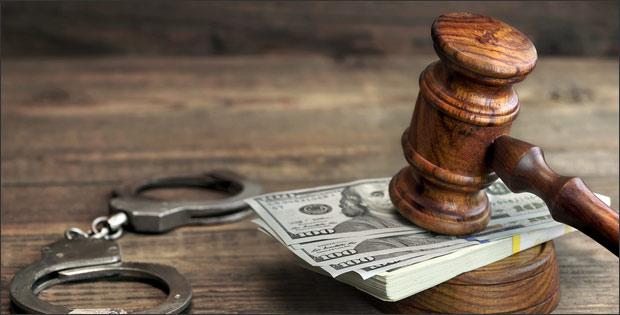Any taxpayer understands that the violation of the IRS taxation laws always attracts severe consequences and heavy penalties from the agency. While there are a lot of taxation errors and mistakes that can make the taxman be on your neck, the odds are raised when facing tax evasion or tax fraud charges. This is primarily because, in the world of taxation, these charges involve more than the risks of heavy penalties as they are serious crimes that have criminal consequences. As such, it is always panic mode for any individual or business that has to face these Internal Revenue Code violations. Since mistakes and carelessness are never considered to be instances of tax evasion or tax fraud, these charges also bring the burden of handling comprehensive audits on your tax returns.
Defined in the simplest terms, tax evasion refers to instances where there are deliberate illegal actions by an individual, corporation, or any entity to evade paying the actual amount of taxes. On the other hand, tax fraud covers the broader range of actions that do not adhere to the taxation laws. Overly, there are lots of ways to commit tax fraud and these include;
1. Filing false returns
2. Aiding in the preparation and providing fake documents or information to the IRS
3. Failure to collect or remit employment taxes
5. Hiding income and overstating deductions
6. Evasion of assessment by the IRS
8. Conspiracy to defraud the government through false claims
9. Inconsistent explanation of tax records
For all these offenses, there are specific definitions under the federal law that must be proven by the tax agency before the defendant can be convicted. It is, therefore, essential to strive and avoid making your case more complicated by making it mandatory to seek professional assistance. The truth is you can never be too careful in how you handle tax fraud or evasion charges, given the adverse consequences one faces. Fortunately, by opting to have a tax fraud lawyer by your side right from the very beginning, a lot of unnecessary mistakes will be avoided. Instead of taking unnecessary gambles, these professionals will utilize their in-depth knowledge of taxation laws and expertise to stand up for your rights. Consequently, you will avoid becoming victimized and transform the otherwise complicated process to one that is easier to handle.
How the IRS handles tax fraud cases
Primarily, tax fraud cases can either be charged as criminal offenses or a civil offense, depending on the burdens of proof. Criminal tax fraud offenses have steeper penalties compared to civil cases as they have higher fines plus the risk of prison sentencing. The main difference between these two charges is that for criminal cases, there is the necessity of evidence beyond a reasonable doubt. Civil tax offenses have a lower standard of evaluation and calls for clear and convincing evidence. Given these differences, the IRS will typically first pursue a criminal offense before going for a civil suit. This is after they fail to meet the higher evidentiary standards required to prove a criminal offense.
There is also the aspect of the statute of limitations when handling both civil and criminal tax fraud cases. Typically, the IRS looks at three years of tax returns for any claim, but for criminal offenses, they will examine up to six years of returns. As such, depending on the specifics of the case, a six-year statute of limitations applies to criminal charges. But, for civil cases, the tax agency has the authority to have it assessed at any time as it has no statute of limitations.
Tax fraud defenses
Each tax evasion or fraud case is unique, given the specifications that have to be carefully considered by a tax attorney. This is why you must consult with a seasoned specialist before taking any action, such as providing the taxman with any required information. Regardless of the mistakes that have been committed over the years, the IRS’s primary focus is on acquiring lost taxes in the easiest way possible. A seasoned tax attorney makes this possible as they have the ability to form effective tax fraud defenses that limits the penalties. The winning edge for having a tax fraud attorney is you have a trusted partner whose focus in on your best interest.




